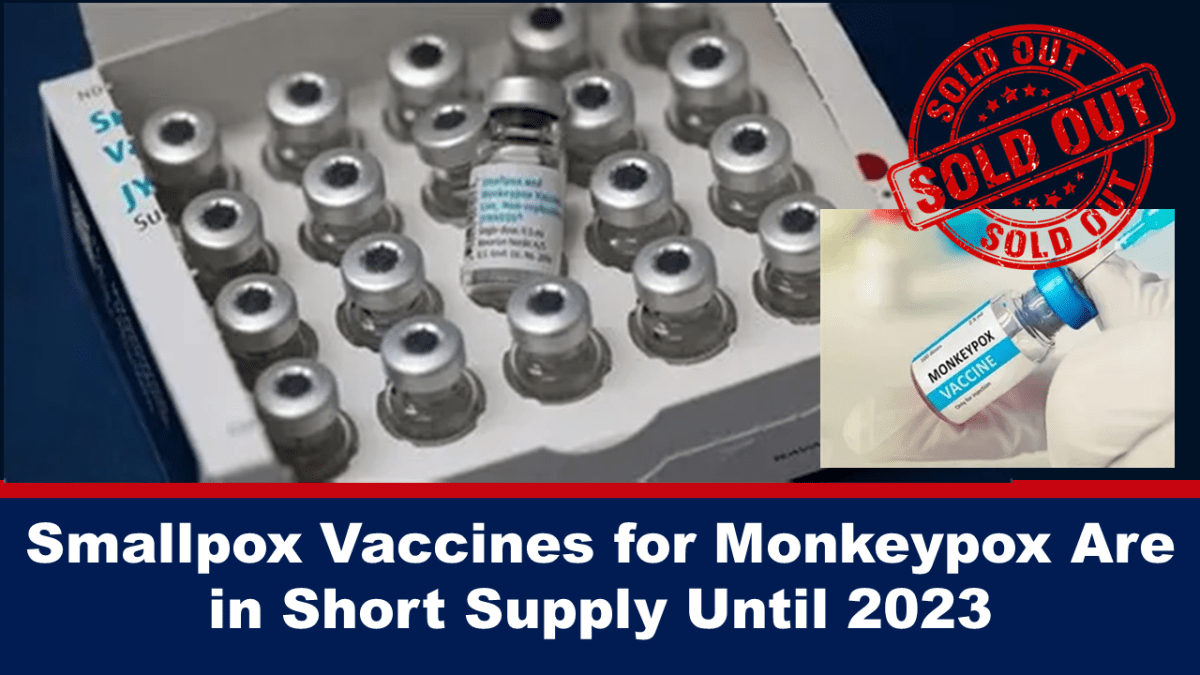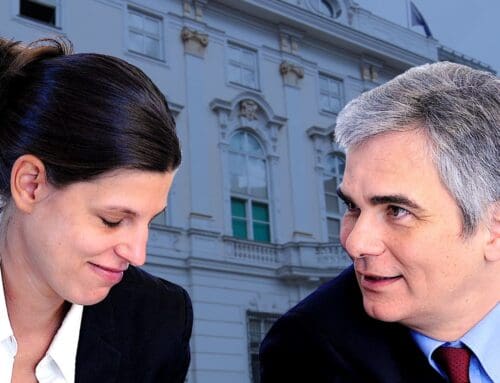
Smallpox Vaccines for Monkeypox Are in Short Supply Until 2023
There is some good news on the monkeypox front, although possibly not such good news for Americans. A Danish company, Bavarian Nordic – which is the sole producer of the only approved smallpox vaccine for monkeypox – has sold nearly all its supplies to the US, and it won’t be making new doses until 2023.
The smallpox vaccine which is reported to be 85% effective against monkeypox is called Jynneos in the United States, Imvanex in Europe, and Imvamune in Canada. Jynneos or Imvanex is the only vaccine that has been approved by the European Medicines Agency (“EMA”) and the US Food and Drug Administration (“FDA”). Imvanex was approved in 2013 in the UK to treat smallpox but it is not approved for monkeypox however, health professionals can use it “off label.”
That the Jynneos vaccines are temporarily out of stock should be taken as good news. It means they won’t be coercing large swathes of populations to get vaccinated until next year. Why wouldn’t we want large numbers of people to be vaccinated against monkeypox, you might ask?
Firstly, because evidence suggests we’re not witnessing an outbreak of monkeypox across first-world countries but instead, it is immune system damage caused by the experimental Covid injections. Injecting people with smallpox vaccines is not going to prevent Covid “vaccine” injuries – stopping the injection of Covid “vaccines” will.
Another possible cause for the so-called monkeypox outbreak is that it is the result of a heavily manipulated virus that was leaked from a lab. However, if the Covid era is anything to go by it’s unlikely we’ll hear the truth about anything regarding monkeypox or its vaccine from governments, public health bodies or corporate media. Until there is honesty, transparency and accountability for the last so-called “pandemic,” who would allow any vaccine to be injected into them whether monkeypox was created in a lab or not?
Secondly, it is very suspicious that one year after, almost to the day, an international biosecurity conference in Munich simulated a “global pandemic involving an unusual strain of monkeypox,” a widespread outbreak happens involving monkeypox with symptoms that “don’t quite match the disease” and, according to the World Health Organisation (“WHO”) Director-General Tedros Adhanom Ghebreyesus, is “behaving unusually.” It feels like a shot-by-shot remake of Covid.
Thirdly, the smallpox vaccine is not risk-free. It causes a huge number of myocarditis cases and other known cardiac problems, making it almost more dangerous than the risk of getting monkeypox. One in 220 recipients developed an obvious case of myocarditis in a US military study published in 2015, and one in 30 got a subclinical case. The smallpox vaccine, when used routinely in babies, was considered the most dangerous vaccine available.
Fourthly, the smallpox vaccine has the potential to re-introduce smallpox. It is known that Covid injections damage people’s immune systems making people susceptible to a range of prior benign pathogens or pathogens that our immune systems would have vanquished. If the smallpox vaccine is 85% effective against monkeypox, it is not good news for the millions of people around the world whose immune systems are now compromised from multiple doses of Covid injections.
We have previously published several articles relating to the current monkeypox outbreak providing more details to the above, read HERE.
Shortage of Smallpox (Monkeypox) Vaccines
Bavarian Nordic’s manufacturing facilities are located in a business park in Kvistgård, a Danish village about 25 miles north of Copenhagen. Its manufacturing facilities have been shut until very recently, and most of the vaccine doses it produced before it closed are currently sitting frozen in plastic bags, not yet usable.
In a twist of fate, Bavarian Nordic closed its bulk manufacturing facility in the spring of 2022 to focus on its other vaccine products, including vaccines for rabies and encephalitis. The company had expected to reopen the facility in the third quarter of this year, and it is “reopening as we speak,” Thomas Duschek, communications partner for Bavarian Nordic, told Wired.
He says it will be operating at full speed within the next month or so, and will be reopening with two production lines as opposed to the previous one. The company is also considering moving to a 24-hour production cycle to meet demands, although this hasn’t happened yet, Duschek says. Bavarian Nordic may also postpone the production of other vaccines to prioritise production of the monkeypox vaccine.
The company is also looking at contracting other manufacturers to ramp up production. It has already inked a deal with a US company, the name of which remains confidential. The problem is that the vaccine is complex to make, so it would take months for another manufacturer to get up to speed. Even at Bavarian Nordic, Duschek reckons it will be half a year at minimum before newly produced vaccines start being shipped.
But this vaccine isn’t the only answer; alternatives do exist. One is ACAM2000, another vaccine that protects against smallpox. But it has its various downsides: It’s linked to some rare but serious side effects, specifically in pregnant people, infants, and immunocompromised people such as those with HIV, which has a higher prevalence among men who have sex with men.
The Chaotic Monkeypox Vaccine Pipeline Is Leaving Everyone Short, Wired, 8 August 2022
ACAM2000’s serious side effects are not rare as Wired has claimed. Dr. Meryl Nass pointed out more than two months ago that the Centre for Disease Control (“CDC”) admits in a November 2021 Morbidity and Mortality Weekly Report (“MMWR”) that the chance of myocarditis is huge – greater than one in 200 vaccine recipients – from the ACAM2000 vaccine:
Because ACAM2000 is replication-competent, there is a risk for serious adverse events (e.g., progressive vaccinia and eczema vaccinatum) with it; myopericarditis also occurs with ACAM2000 (estimated rate of 5.7 per 1,000 primary vaccinees based on clinical trial data), but the underlying mechanism is unknown.
On Monday, The New York Times reported that the Biden administration had decided to stretch out its limited supply of monkeypox (smallpox) vaccine by allowing a different method of injection that uses one-fifth of the current dose. For the FDA to authorise the reduced dosage into the skin instead of a full dose into underlying fat – the so-called intradermal injection – the Department of Health and Human Services will need to issue a new emergency declaration allowing regulators to invoke the FDA’s emergency use powers. That declaration was expected as early as yesterday afternoon.
Research on intradermal injection of the vaccine for monkeypox is essentially limited to one study in 2015. A study that was sponsored by the National Institutes of Health. Some outside experts have criticised the data backing up the method for monkeypox as too thin and narrowly focused. Additionally, the intradermal method can be complicated for vaccinators, who must guide a needle into a thin space.
As Dr. Mike Yeadon warned: learn from Covid-19 and understand that for the next “pandemic” vaccines are not the answer. Although Dr. Yeadon was referring to respiratory illness type pandemics, after reading the above it would be fair to say the same warning applies to WHO’s monkeypox pandemic.









